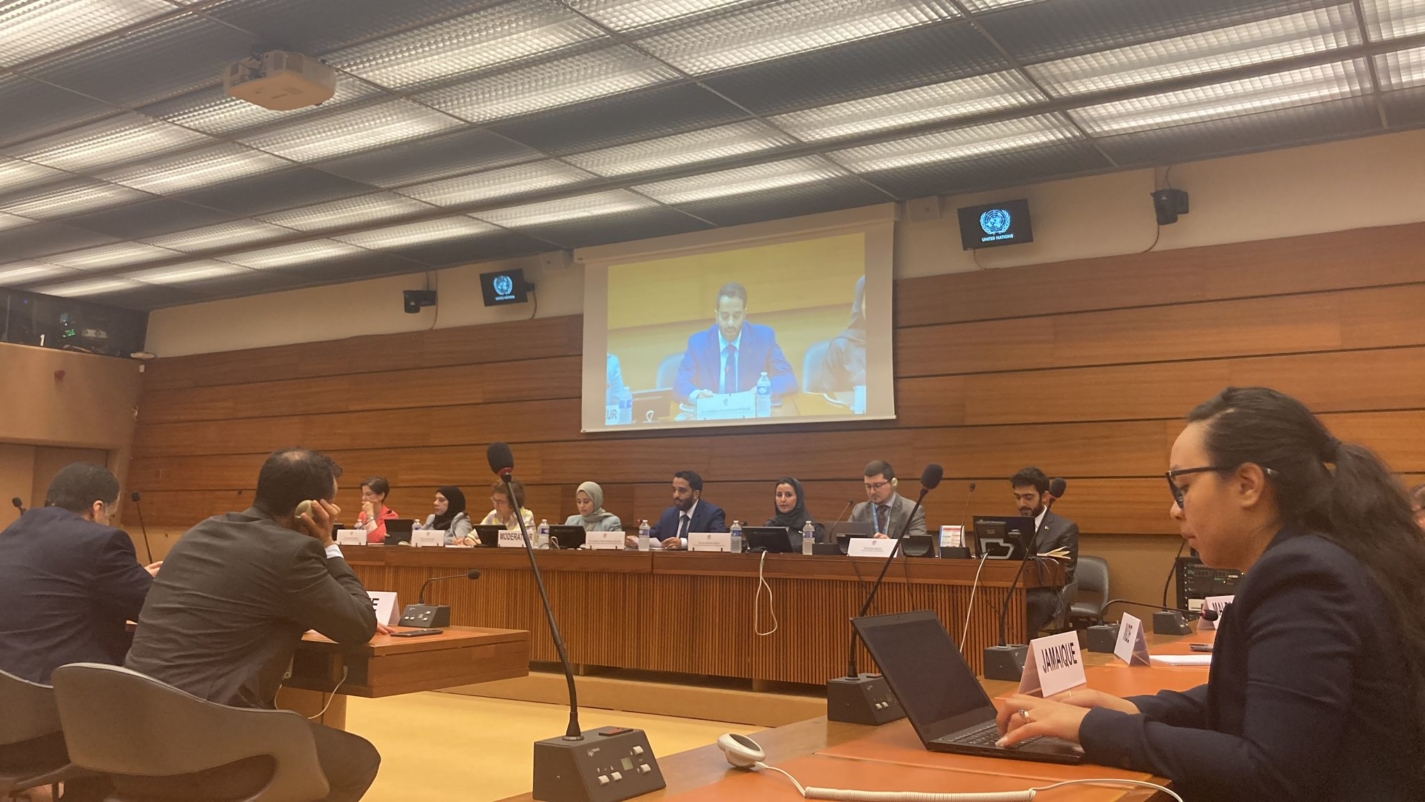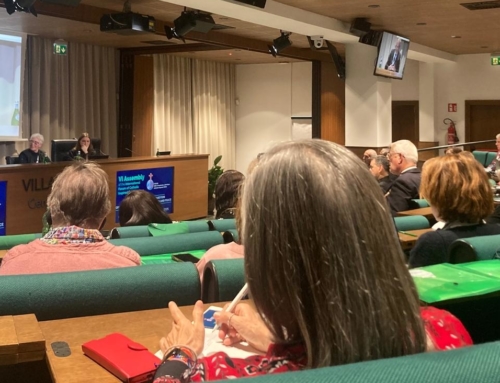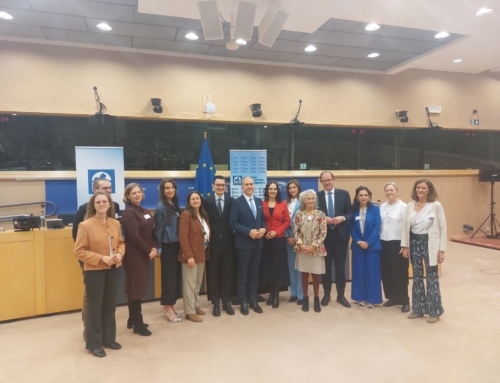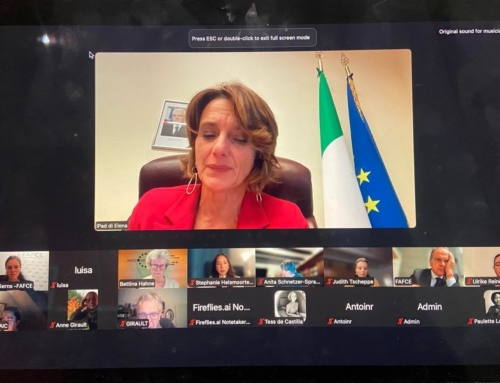Brussels, 3rd July 2024
Last week FAFCE attended an event at the United Nations in Geneva to commemorate the 30th anniversary of the International Year of the Family. Co-organised by the Permanent Mission of Qatar and the Doha International Family Institute, last Tuesday’s event was attended by a diverse range of Permanent Missions to the United Nations, including the Holy See.
The panel at the event addressed the “contribution of family-oriented policies in the promotion and protection of human rights and its role in tackling the impacts of megatrends such as technological change, urbanisation, migration, demographic change and climate change on the functioning and well-being of the family”.
Additional focuses included the “current and emerging economic, political, social and demographic challenges that affect the institution of the family”, the “effects of climate change on families and future generations”, the “impacts and support of migrant families”, the “challenges and opportunities of technologies”, and “the role of the family in the achievement of the 2030 Agenda for Sustainable Development and the importance of enhancing family cohesion as part of a comprehensive approach to sustainable development”.
The speakers featured were as follows:
- H.E. Dr Hend Abdulrahman Al-Muftah, Permanent Representative of the State of Qatar to the United Nations Office in Geneva.
- H.E. Nada Al Nashif, Deputy High Commissioner for Human Rights.
- H.E. Sultan bin Nasser Al-Suwaidi, Assistant Secretary-General of the Gulf Cooperation Council for Legislative and Legal Affairs.
- H.E. Dr Sharifa Al-Emadi, Executive Director of the Doha International Family Institute.
- Dr Yousra Karim Mohsen, Director General of the Iraqi Women Empowerment Department.
- Reem Alsalem, United Nations Special Rapporteur on violence against women and girls, its causes and consequences.
- Giorgio Mazzoli, Director of UN advocacy at ADF International.
- Sara Abdulaziz Alfaisal, Council Member at the Human Rights Commission of the Kingdom of Saudi Arabia.
FAFCE has long been raising the alarm on the demographic winter, working at the European level to encourage institutions and Member States to consider the family as an investment for the future of the continent and not a cost. In a 2018 Board Resolution, FAFCE urged institutions and Member States to “take into account the demands of young people, who often would like to build a new family, but are often discouraged by individualistic policies and cultures which are hostile to the family.”
In a recent opinion article, FAFCE President Vincenzo Bassi wrote: “The family is the basic cell of society, providing intergenerational solidarity and nurturing the next generation in service of the common good. Policies that support families are investments in human capital, economic growth, and social cohesion. In this time where loneliness is the new pandemic, social cohesion and the question of demography cannot be separated; we must build a Europe that works for young people, disabled people, and often-ignored rural areas.”
Similarly, as relates to the climate change question, FAFCE’s Spring Board Resolution linked to the well-being of the family to the well-being of the family, declared that Integral ecology needs at its core the recognition of the family. Regarding the resolution on ecology, Vincenzo Bassi, FAFCE’s President, said: “The problem is not the children but consumerism. There is no ecology without the person; no person without the family. Therefore, there is no ecology without the families and communities of families at the heart of the transition.”
He continued: “Crucial to the success of the ecological transition will be intergenerational solidarity, which requires a protagonisation of the family and networks of families. It is through these networks that we can combat the pandemic of loneliness and build a hopeful future. As more than 400 million Europeans vote in June for the next parliament, we remind political representatives that to protect the planet is to protect the family.”
We have also been focused on the digital transition, on the harms of pornography and the need for protection of minors online, the rise of platform work and the importance of dignified labour, the right to disconnect and improving work-family balance, and the impacts of the digital sphere on addiction, mental health, and loneliness. Indeed, the 2023 Spring Board Resolution (entitled The crisis of loneliness in times of digital transition: family networks as agents of change) called on “the European Union and its Member States to consider family networks as agents of change, with a special attention to the right to disconnect of working parents, to the digital education of children and to their protection from harmful online content.”
FAFCE welcomes the desire at the United Nations level to tackle the three epochal transitions: the ecological, digital, and demographic transitions.







